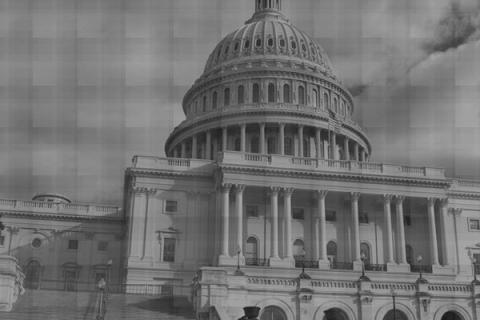Let's propose a thought experiment. Suppose someone approaches you and offers you the following deal: "If you sign my petition, I will give you ten thousand dollars, your car will crash in five days, your children will start skipping school, your church will burn down and your wife/husband will leave you." Let's also assume that you know that the person offering you this deal is in a position to deliver all the promised consequences. Would you take the deal?
If you think the ten thousand dollars outweighs the other troubles you would accrue by going along with this situation, then perhaps you would sign the petition. But typically, something which has one good effect for every four bad ones is considered a bad deal, especially when each of those four will erode the effectiveness of the one good effect. This is why Proposition 5, much like the hypothetical person in this thought experiment, deserves to have the door slammed in its face.
It's not often that a proposition unites two partisan former governors against it, but Prop. 5 has done just that – both former Governor Pete Wilson and former Governor Gray Davis oppose the bill for different, but equally valid reasons. Even well-known liberal actor (and fictional President) Martin Sheen opposes the bill, which says something, considering the fact that the bill's proponents tout it as a liberal decriminalization bill for victimless crimes. It should be obvious, therefore, that there certainly is no shortage of good reasons to oppose the bill, and a scarce number of good ones to support it.
Prop. 5 is titled "The Nonviolent Offender Rehabilitation Act", but a more appropriate name would be "The Road to Backlash." Prop. 5 claims to make drug laws more humane, and to focus on the rehabilitation that is badly needed in place of punishment where drug offenses are concerned. Much like the heroin addict who swears for the tenth time that he has taken his last hit, these claims are transparent lies. What this supposedly "humane" bill does, as the Los Angeles Times argues, is make drugs a catch-all excuse for almost any crime, violent or otherwise. The Times points out that under Prop. 5, someone could conceivably break into a house and steal, and would be excused if he swore that drugs made him do it, and agreed to undergo treatment. There is no limit to the number of times someone can use this drug addict excuse.
It would be nearly impossible for a prosecution to defeat this sort of defense. All criminal law involves laws dealing with state of mind, or mens rea, but the burden of proof within those laws is sometimes precariously subjective. Drug addiction qualifies as a state of mind, rather than an act in itself, and trying to disprove its existence would be like nailing jelly to a wall. Consider: the purchase of illegal drugs is notoriously difficult to trace as it is. After all, drug dealers don't typically keep a lot of paperwork identifying their regular customers by name and social security number, and with good reason. Moreover, the social and legal stigmas against revealing drug habits means that there is probably no secondary source, such as a psychiatrist, which could testify as to the truth of someone's claim to be a user.
This means that except in rare cases where the perpetrator was exceedingly sloppy in covering his or her tracks, the court would be reduced to taking all sorts of potentially violent criminals at their word that they're not responsible for their crimes because "drugs made me do it!" These criminals would then be promptly sent to useless rehabilitation programs, where they would only waste their time and the state's money being "rehabilitated" for a condition which they never had, only to be released into society to commit violent crimes under the aegis of "addiction" again. One wonders if the state will make imaginary friends a defense next, since their existence would at least be disprovable.
This perverse incentive to lie about addiction is reason enough to reject the bill; one doesn't even need to begin to examine its ludicrous approach to solving the problem of dealers. Laws against victimless crime may be an addiction for the state to kick, but the medicine it needs must not be transmitted through the infected needle that is Prop. 5.
